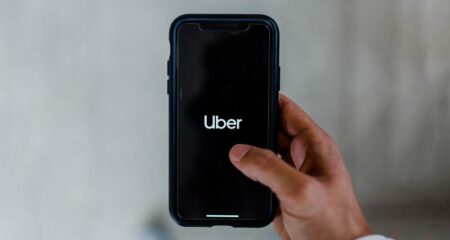 For all the attention garnered by Uber, with given cars being impounded, drivers being attacked and politicians being confused at how to regulate, there’s another disruptor rapidly — but quietly — being embraced in South Africa: Airbnb.
For all the attention garnered by Uber, with given cars being impounded, drivers being attacked and politicians being confused at how to regulate, there’s another disruptor rapidly — but quietly — being embraced in South Africa: Airbnb.
And here there aren’t any weird regulatory vagaries. Hundreds of thousands of South Africans have been operating bed and breakfasts and guest houses, with these only growing in popularity over the last decade. Listing your apartment or spare room on Airbnb is similar from a legal point of view (municipal by-laws aren’t difficult to navigate), but because it’s a platform, Airbnb solves the distribution problem, too. It’s not as if your house is going to be impounded because you don’t have an operating permit!
I hate the word disruptor. It’s become overused (and often used incorrectly to describe anything and everything even vaguely competitive or different).
Except Airbnb is a disruptor. Just like Uber. They’re the two most obvious (and well-known) examples of what’s become known as the “on-demand economy”. A service — any service — on demand, typically via a mobile app. Not just because your smartphone is always with you, but because an app knows your location, your identity, enables instant payment… You know the drill.
The effects of Uber will be seen relatively slowly over time. For now, rival taxi cabs have obviously felt the competitive pressure first (it’s remarkable how rates for meter cabs in Cape Town have dropped consistently as Uber’s gathered traction).
Next up, it’s the turn of car rental companies. Practically every single person I speak to these days no longer hires a car on business trips. They land at their destination, “hail” an Uber and spend that travel time working or reading. No forms. No queues.
Next is private car ownership. And while it doesn’t make a tremendous amount of sense in a sprawling mess like Johannesburg (that hasn’t prevented Mike Stopforth from trying), in a denser city like Cape Town it makes complete sense. A friend of mine “semigrated” a few years back and sold his Beemer. He “Ubers” everywhere. Over the arc of time, this kind of fundamental disruption is going to mean profound change. Two-car families become one-car families. Those sprawling car dealerships? The service and maintenance charade? Car insurance? Vehicle finance?
But enough about Uber.
Airbnb is interesting to me because it is a clear and present danger to the formal hotel sector. This trend is already taking hold in global cities (it’s amazing to see what happens in a city like San Francisco during huge conferences like Apple’s Worldwide Developers Conference). Cape Town falls into this category. Those foreign tourists aren’t all clamouring to stay at the Radisson or the Hilton. Thing is, Airbnb spots tend to offer a far more authentic experience of a city.
Reports from consultancies tell us that’s what “millennials” (another word I hate) want. But it is. More and more travellers are wanting to experience a city with locals. Airbnb offers that. Share an apartment with someone who has a spare room. Get tips and experiences you simply wouldn’t be able to from a concierge. Eat with them.
Friends of mine stayed in spots found and booked on Airbnb during a month-long trip to the US last month. Another friend hopped from one Airbnb spot to another in both recent trips around Europe.
Airbnb offers more typical apartment-type rentals too. But that’s not quite the story the company wants to sell. It will argue vociferously that it’s not a hotel company.
Which would you prefer? A centrally located apartment to yourself with DStv, uncapped Wi-Fi, a kitchen, a couch, a proper fridge? Or a generic hotel room (complete with ruinous Internet charges, overpriced drinks and food, and limited TV channels)?
And from a landlord or owner point of view, Airbnb is a solution to many, many problems, chiefly yield. More on that some other time…

If I were the CEO of one of the large hotel groups in the country, I’d be very very worried.
On his brief stopover in South Africa recently, Brian Chesky, CEO and co-founder of Airbnb, revealed that the company had 30 000 listings in Africa. Some 9 400 of those are in South Africa.
Now, 9 400 doesn’t sound like a lot. Especially not when there are 1,5m Airbnb listings worldwide. Except, that 9 400 is massive when you compare it to total room numbers of the larger hotel groups. It’s also growing at an eye-watering rate, up by 138% over the past year.
At the time of its acquisition in 2014 by US hotel giant Marriott, Protea Hospitality Group had 10 148 rooms in seven African countries including South Africa, across 116 hotels. After that deal, Marriott became the largest hotel operator in Africa. Of Protea’s 116 hotels, 79 are in South Africa. Protea’s not the largest hotel group in the country, though.
Tsogo Sun has 13 132 rooms in South Africa (the bulk of its total portfolio of 14 204 rooms). Most of these rooms (5 421) are in the full-service Southern Sun brand, while just under 5 000 are in the derivative brands, Sun Square, Garden Court and Stayeasy (what it terms “Select Service”). A further 1 113 rooms are at luxury properties (Palazzo, Sandton Sun, Suncoast Towers and 54 on Bath), while 1 690 are Sun 1 rooms (in its budget portfolio, previously Formule 1).
Still think the 9 400 isn’t a lot? That number refers to listings though, and many of those listings will have more than one room. I’d bet that, even on the 9 400 number alone, Airbnb is larger than Protea’s room-base in this country. And on a total room number, it’s probably close to — if not larger than — Tsogo’s hotel portfolio.
And if not now, what about six months’ time?
(By contrast, City Lodge has around 6 500 rooms in South Africa. It operates 54 hotels in sub-Saharan Africa, of which 51 are in South Africa. Occupancies, according to its results for the six months to December 31 2014, averaged 68% across its portfolio. And Sun International operates 3 113 hotel rooms in South Africa, across three standalone hotels and 10 casino properties, with nearly half of those rooms are at its sprawling Sun City complex.)
Airbnb’s Chesky also revealed that 300 000 people are sleeping in the 30 000 homes/rooms listed on the service across the continent each night. There’s something baffling about those numbers. If they’re right (and there’s no reason to doubt them), that means each listing has 10 people, on average, staying in it each night. It doesn’t quite seem to add up.
Hotel operators will look at this threat with great scepticism. After all, they’re still “doing fine” despite the B&B boom of the 2000s. They’ll also probably talk about “categories of traveller” and insist that their focus on the “corporate market” (or whichever segment they target) means they won’t be affected. Of course, there are categories of traveller who do prefer hotels. But, the fact that Airbnb solves the distribution and booking problem seamlessly means this time, it really is different.
According to Airbnb, the number of people staying in homes, apartments and rooms in South Africa booked through the service is up 257% in the last year. A report on Memeburn also cites the number of South Africans using Airbnb to book places to stay having increased by 163%. That’s not all domestic travel, however.
Those overseas tourists (the ones who are still coming, despite efforts by the department of home affairs to ensure otherwise) aren’t booking stays on the websites of giant, global hotel brands (or even aggregator-behemoth Booking.com). Chat to a few tourists in Cape Town and Johannesburg. You’ll be surprised by what you hear. Increasingly, these travellers are not booking accommodation for their entire trips (or at all). They’re not even booking in advance. They land in a city, open the Airbnb app, and find a spot to stay. Or they’ll book the first few nights and make it up from there. Serendipity. Discovery. Something different.
And I can guarantee you’re starting to see increasing numbers of local business travellers preferring to stay at an apartment (ie not in a hotel). This may take a while to surface at giant companies with travel policies (and departments), but that’s not the biggest chunk of the market.
Right now, everything seems fine for the hotel sector. It’s finally recovered from the significant overcapacity as a result of the 2010 Fifa World Cup. City Lodge, in its most recent results, points to “limited supply of new hotel capacity” as a driver of the trend in higher occupancies. Maybe the status quo will persist for a while still.
That’s the thing about disruption. It tends to happen slowly, almost unnoticeably. And then all at once.
- Hilton Tarrant works at immedia, specialists in native mobile app and Web development
- This column was first published on Moneyweb and is republished here with permission




